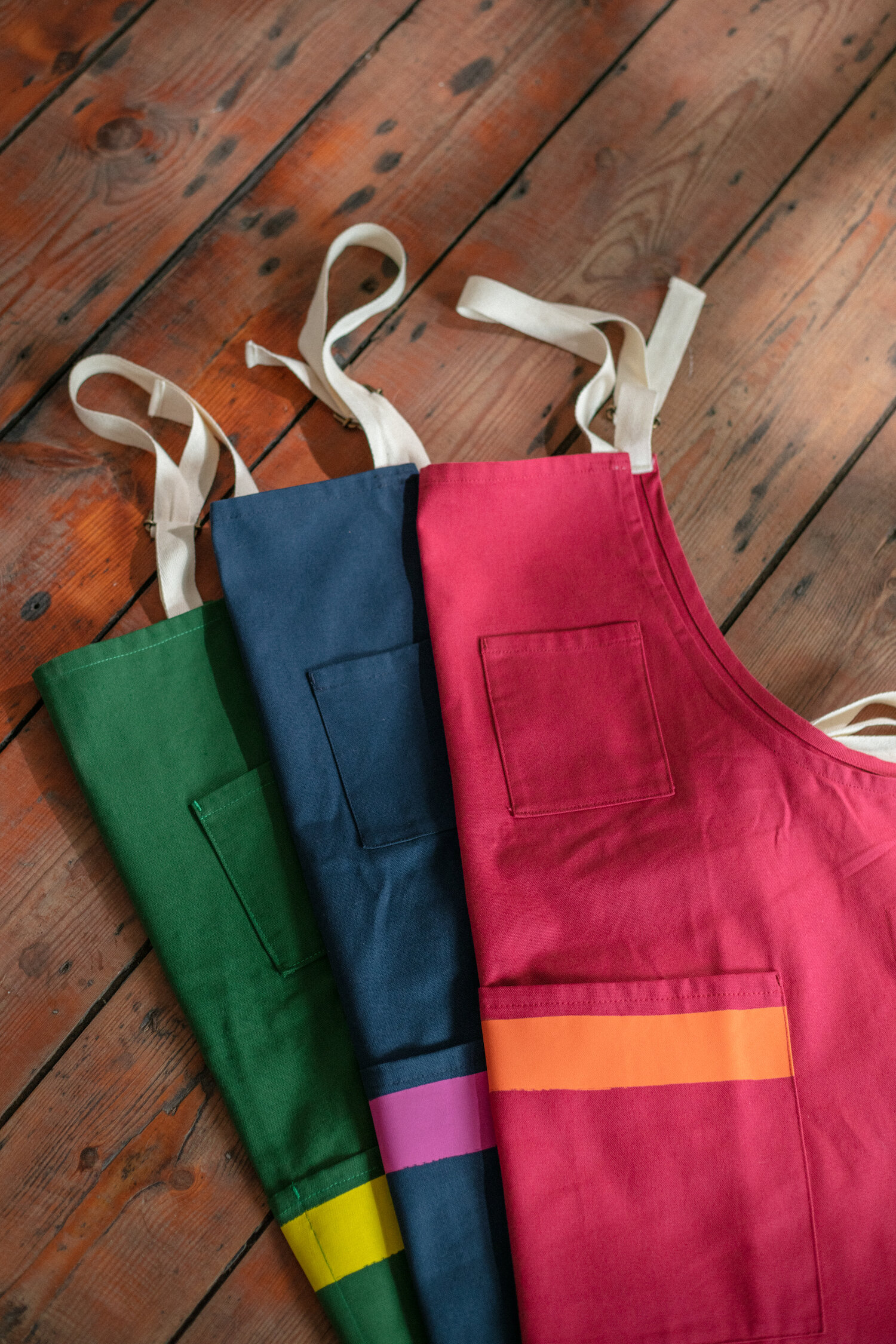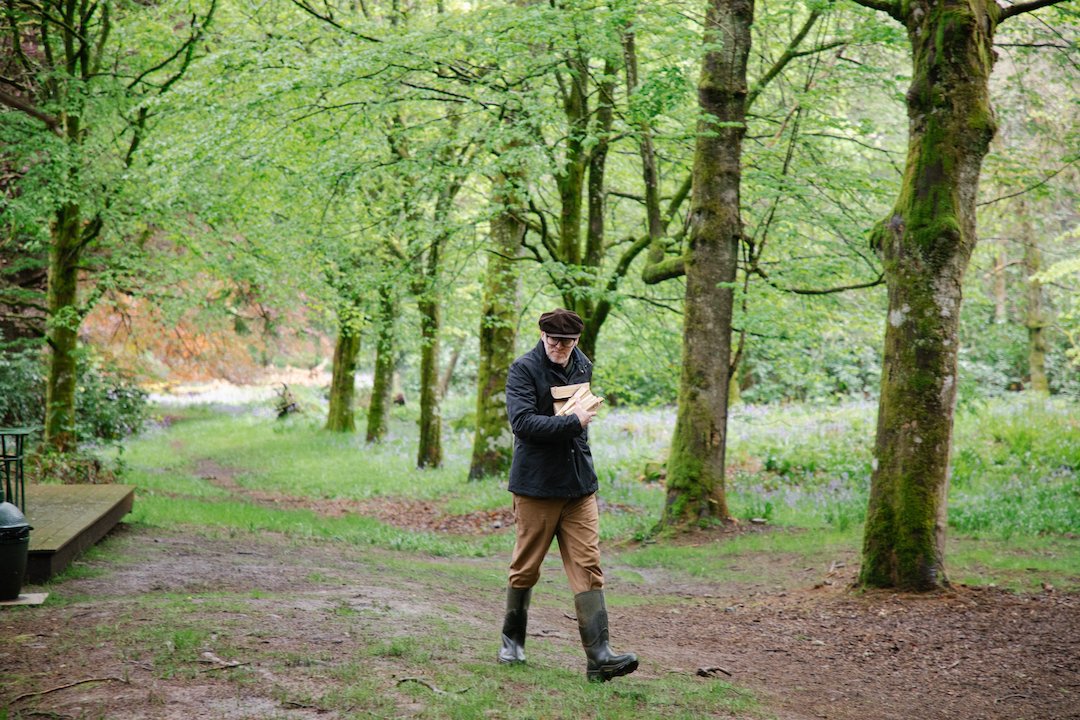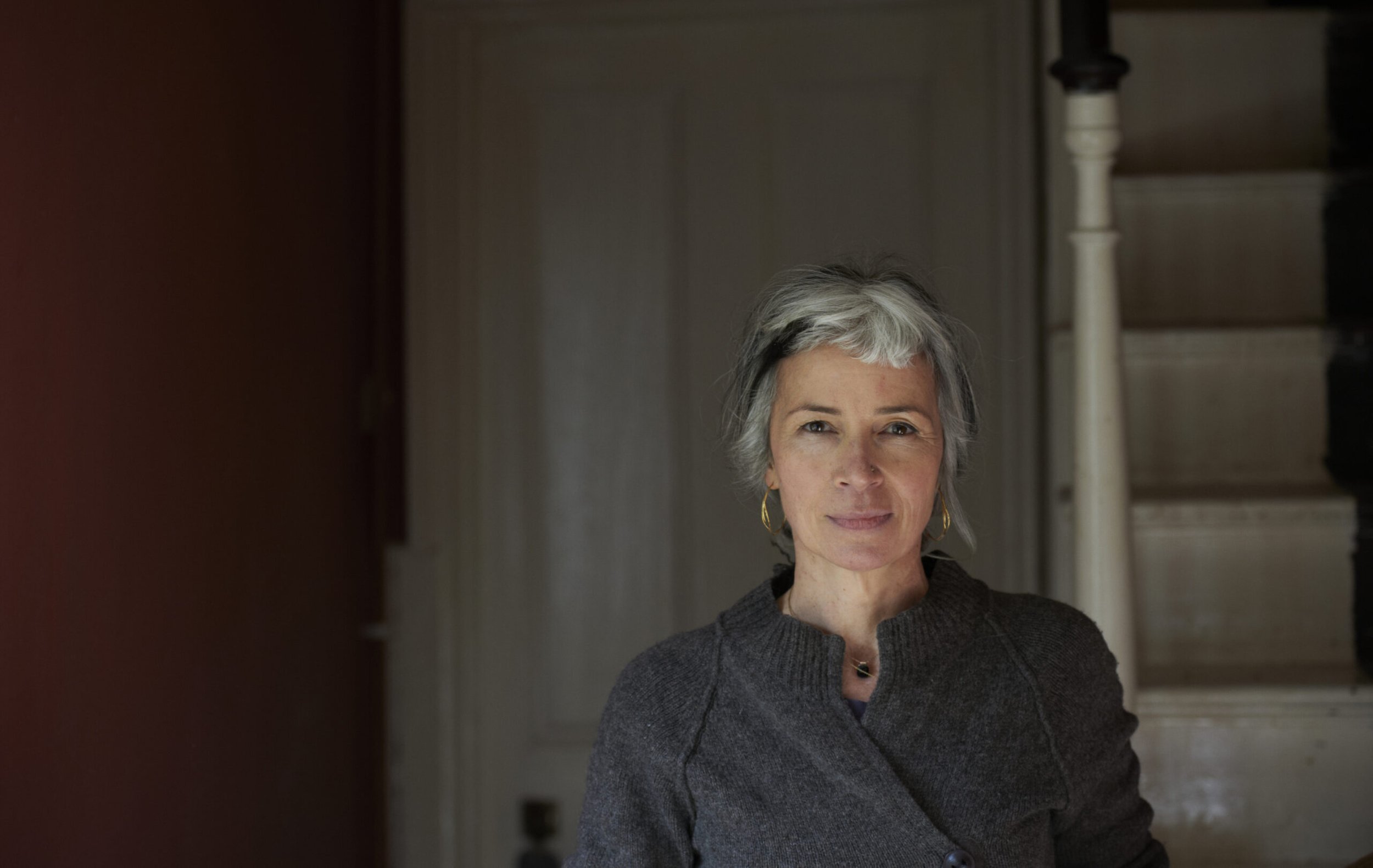Miranda West On The Do Book Company
Interview by Jimmy SandisonMiranda West is the founder and publisher of The Do Book Company, a collection of books by people with good ideas, doing good things. No two days are the same for Miranda – especially right now. We discuss Miranda’s career and the lessons she takes from the Do Books; how she finds inspiration and what success looks like to her.
Some Good Ideas: What did you want to be when you were growing up?
Miranda West: As a young teenager, I remember either reading the book or watching the TV adaptation of the Barbara Taylor Bradford novel, A Woman of Substance. It wasn’t exactly quality drama – and I probably wouldn’t get past the first 5 minutes if I watched it now – but for some reason, I was inspired by the protagonist who went from kitchen maid to start her own business. It was a small shop that became a string of department stores, and ultimately a retail empire. I have no idea why it struck a chord, maybe it was my first encounter with a woman starting a business from scratch. Much later when a teacher asked what we wanted to be when we grew up, I remember saying, ‘businesswoman’ – and my friend Katie sniggering hard. I also wanted to work in the arts. Book publishing is a near-perfect blend of the creative and the commercial. Both strands suit my personality so maybe that’s why I’ve stuck with it for so long.
SGI: What does a typical working day look like for you?
MW: The beauty of Do Books is that each day is different. Actions may be repeated – accounts, filling orders, and so on – but each book brings with it a new set of creative challenges. Editing, image selection, discussions with our book designer, writing cover copy, going through and resolving copy-editor queries, dealing with our printers, liaising with our publicist. There is a great deal of back and forth with our distributors too – sharing information for upcoming titles, reviewing sales, overseeing the shipping of books.
Recently, we announced that you can now stream some of the books on Spotify. It took over a year to bring to fruition. I have no idea how it will affect the business – a smart way to find new readers or fewer physical copies sold? But as one of the first publishers to stream their titles, it’s an exciting space to be in.
Currently, we’re in lockdown so I’ve adapted to a different daily rhythm as I’m in the house with my husband and both children (12 and 15). I get up early, around 6.30 am, and am usually online by 8 am. I’ve been getting to the Post Office around 8.45 am – before the queue gets serious – to drop off orders that I’ll have filled the previous day or evening (currently there are boxes of books, mailers and other packing paraphernalia hiding under the table in our front room). Since shops closed, our website orders have gone up +200%. This uplift will certainly help get us through this period but it’s been quite physically and mentally challenging.
Then at 10 am, I have a daily Zoom call with our new sales and marketing exec, Sasha. She started 1st April (mid-pandemic!) and is our first full-time employee. The calls have helped to give some structure to the day as we’re both at home. It’s part-training, part-going through the tasks we’ll be working on that day.
Like every business, we’ve had to process a lot of new, rather alarming information in a short amount of time. Work out how the business will be impacted and how some of these incoming fireballs can be put out or dodged. We focus on the day-to-day – the things we can control – and try not to worry too much about the long term. The aim right now is to emerge from lockdown with our health, a family still speaking to each other, and something resembling a publishing company.
SGI: What drove you to create Do Books?
MW: I was always happy working in-house with other people but, like most entrepreneurs, I had an itch to scratch – more creativity, responsibility, and autonomy. Starting a company was never an anti-establishment thing. All big publishing houses are essentially made up of lots of smaller imprint and I was fortunate to work at places that encouraged us to think creatively and act on ideas. The catalyst to create Do Books came when I left an editorial role at one of the UK’s biggest publishing houses to move abroad.
“I was always happy working in-house with other people but, like most entrepreneurs, I had an itch to scratch – more creativity, responsibility, and autonomy.”
Miranda WestMy husband’s job was relocated and, as a family, we were given the option to move. We decided to take it – the children were really young and work, with the added joy of commuting across London, was intense. Back then, there was no flexible working so it was a natural time to switch things up. I came across the Do Lectures online and loved everything about it. I approached the founders, Clare and David Hieatt, that afternoon with the idea of starting a book company. I knew I had enough publishing experience to make that side of things work but had to teach myself how to start and run a business. It was a massive learning experience, but I knew it’s what I wanted to do. Even if I had doubts (and I’m sure they did too!), I was being propelled forward by an invisible force. Maybe I had found my vocation, purpose – call it what you will.
SGI: Why are the lessons you publish important?
MW: The books we publish are all written by individuals who have spoken at the Do Lectures in west Wales; that was the other funny thing, I was actually born in Wales but lived in England my whole life. The idea was to commit the ideas and wisdom of these innovators, change-makers and pioneers to print in the hope that they would encourage and inspire others on their life journey. If we can help people in some way, that’s worth doing.
SGI: How do you encourage people to do something?
MW: Most people pick up a book with a desire to either learn something new or create positive change. There is something they want to improve, to make better. The book becomes a catalyst for that change. My job is to ensure the books ‘work’. That their thinking has opened up and they’re motivated to give something a go and not left with unanswered questions. Our strapline is ‘books to inspire action’. The authors are encouraged to focus on the ‘doing’ rather than the background theory. Interestingly, we’re one of the few publishing houses who work almost exclusively with authors who aren’t ‘writers’. But that’s part of the magic – they’re all out there, on the front line, doing it. The books go through a rigorous editorial process. I do the initial structural edit, which is usually a sleeves-rolled-up job. There’s no point in publishing a book that makes no sense, is too dense or pretentious. Then we work with freelance copy-editors and proofreaders. We always put the reader right at the heart of the book and ensure it’s written in an engaging and accessible style. And is entertaining. I always ask, ‘Would I read this? Would I find it interesting and informative, inspiring and motivating?’ Hopefully that’s a good enough barometer to ensure the books aren’t boring or dry. It’s how I commission books, too. I think about whether I’m excited to work on it and bring it out into the world. The series is highly curated; we’re not in the business of publishing lots and lots of books just to hit an inflated budget.
SGI: What lessons/ inspirations from the Do Books have you applied to your own life?
MW: Probably more than I’ve realised. Like most founders, you tend to move forwards – because you have to – and don’t spend much time looking backwards or reflecting on how far you’ve come. If you’re still in business you’ve probably doing something right and should keep going. Especially if you’re enjoying it too, which I am. The Do Lectures is full of the most inspiring people with the most incredible life stories and experiences. I have no idea how much of that has rubbed off on me, but it’s probably a great deal. I try and live in the moment, be grateful for what I have, help others where I can. But perhaps it’s the spirit of Do that for me, is a blueprint for how we can (and should) work and live. Generous, kind, considerate, creative, progressive, sustainable, interconnected. The thread that runs through all the talks and books is positive change.
“I’m not sure it’s courage, more dogged determination. I tend to just ‘work through’ which I guess you could call perseverance or tenacity.”
Miranda WestSGI: How do you have the courage to go for it?
MW: I’m not sure it’s courage, more dogged determination. I tend to just ‘work through’ which I guess you could call perseverance or tenacity. The thing that has helped is never really doubting what I’m doing. You could say I have the courage of my convictions. Even if there are bad days, which of course there are. I have every belief in the books we publish and it would never occur to me to not continue doing this.
SGI: How do you know if/when you are successful? What does success mean to you?
MW: On one level, you could say we’re already successful by having created a sustainable business with an engaged community that’s generating enough revenue to create product, pay overheads and employ and help develop people. It’s taken a few years, but I’d say we’re more or less there. Obviously, I have bigger ambitions for the company and that level of ‘success’ may never be realised. You know, the usual things: to run the coolest publishing company on the planet; to have everyone read or own at least one Do book. I think it could happen but then again, I don’t know many sane people who do this. David Hieatt wrote this (it appears in his book, Do Purpose):
“Starting a business is hard. You’ll work like a crazy thing and have to sustain that over a long period of time. Poor pay. Terrible hours. Tons of stress. Any normal, rational person would quit. And that’s what happens. When things get tough, and there will be a point when they do, sane people quit.
But entrepreneurs are different. They fall in love with the change they are making, so have to find a way to make it work. Their love stops them quitting. Love makes them persevere. Love blinkers them to all the worry and stress. And it’s their purpose that fuels that love.”
“Love makes them persevere. Love blinkers them to all the worry and stress. And it’s their purpose that fuels that love.”
David Hieatt 






















